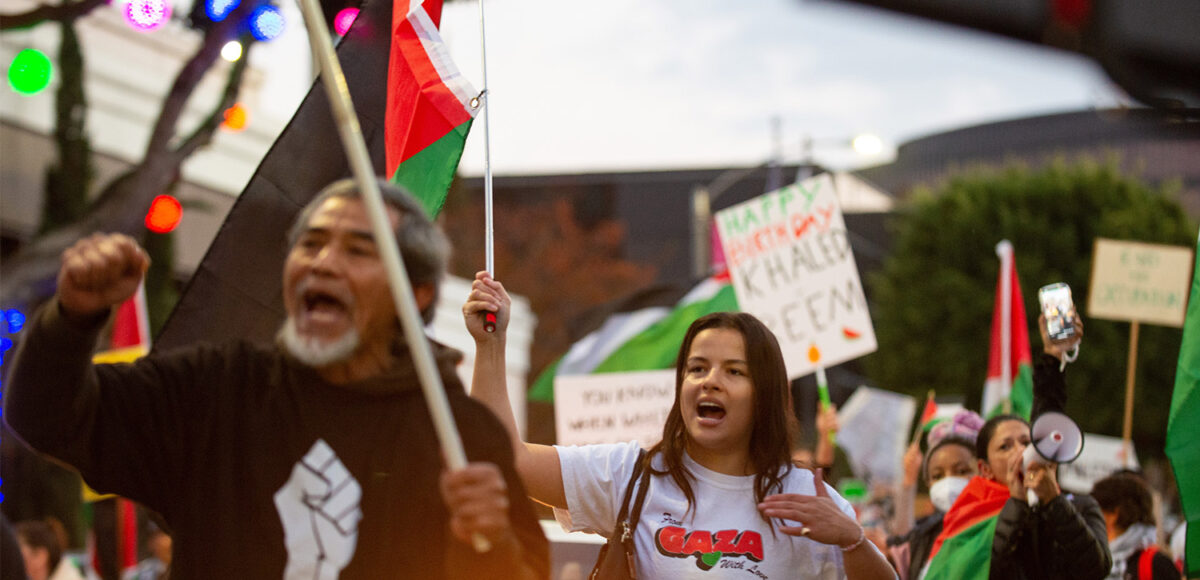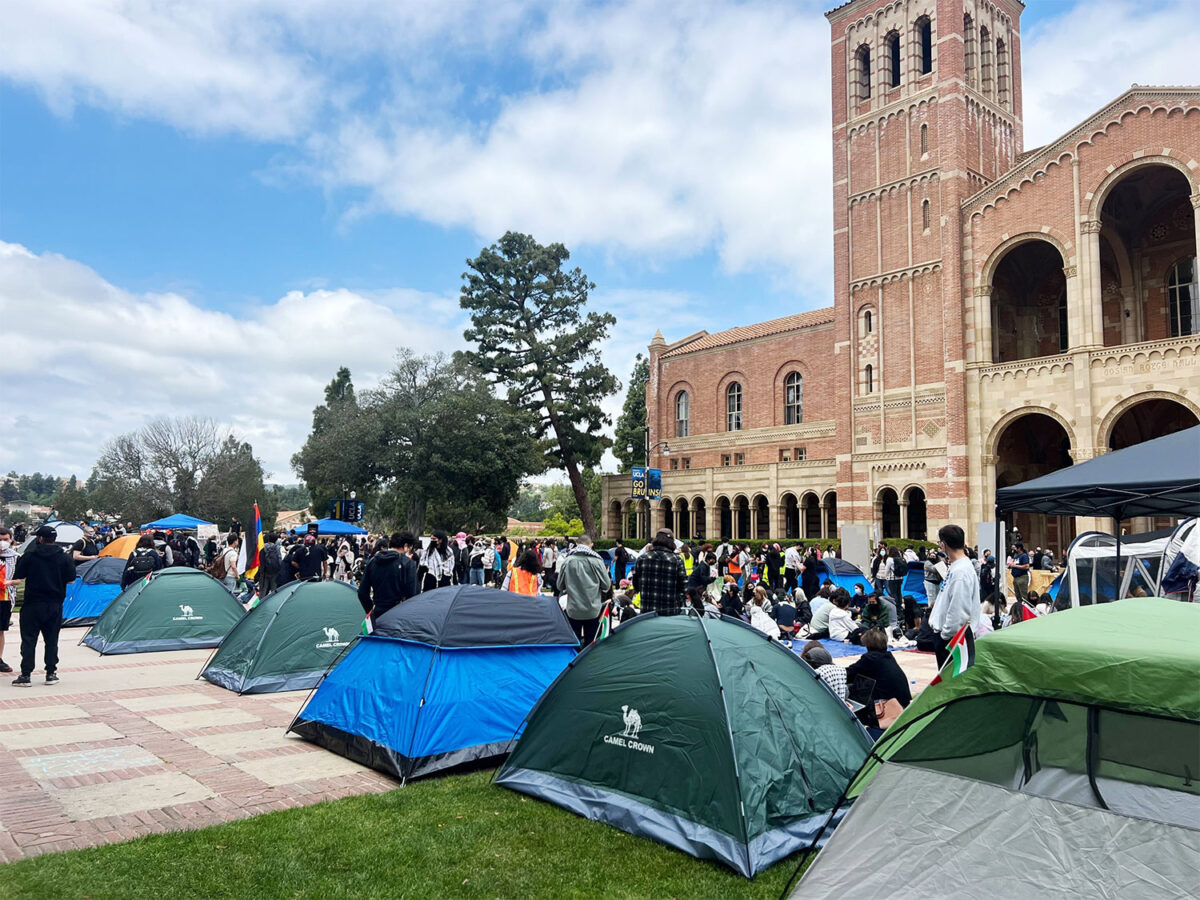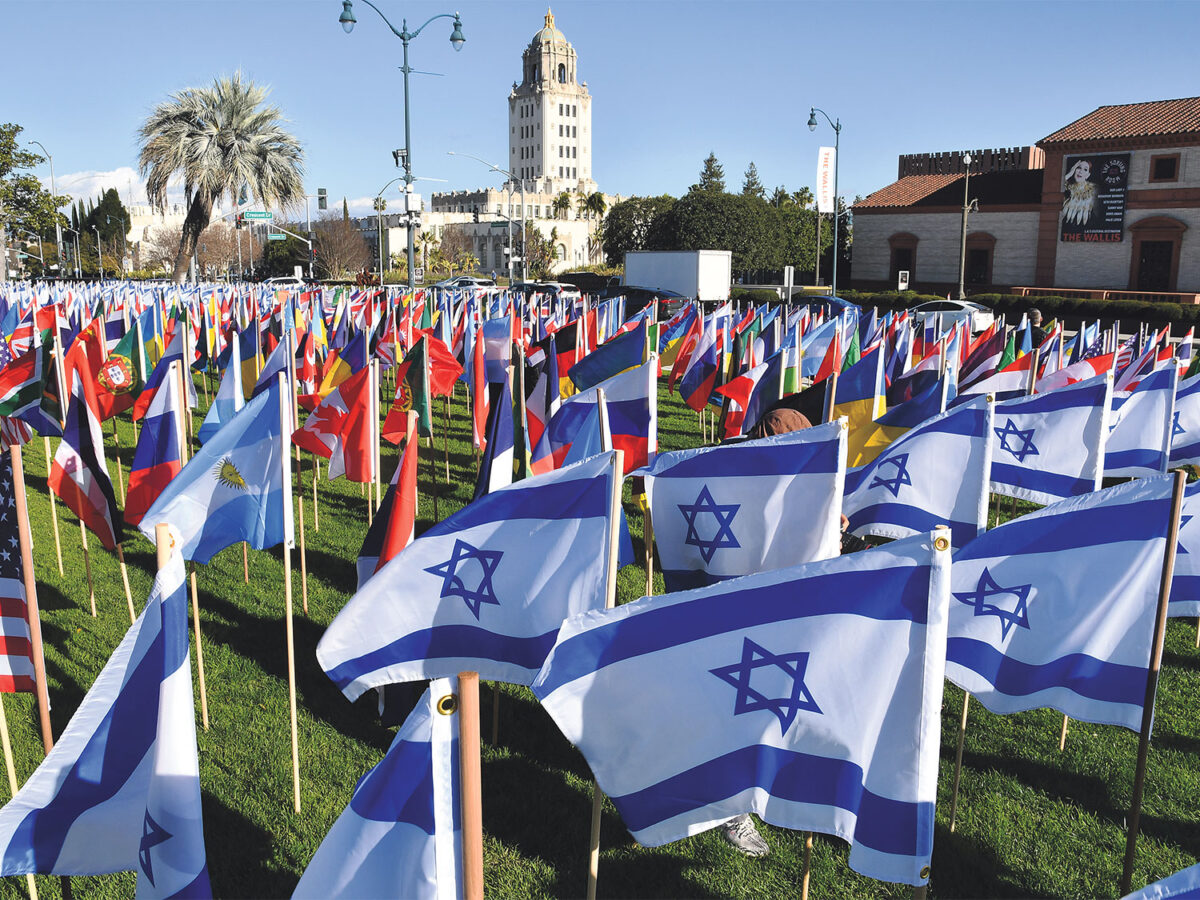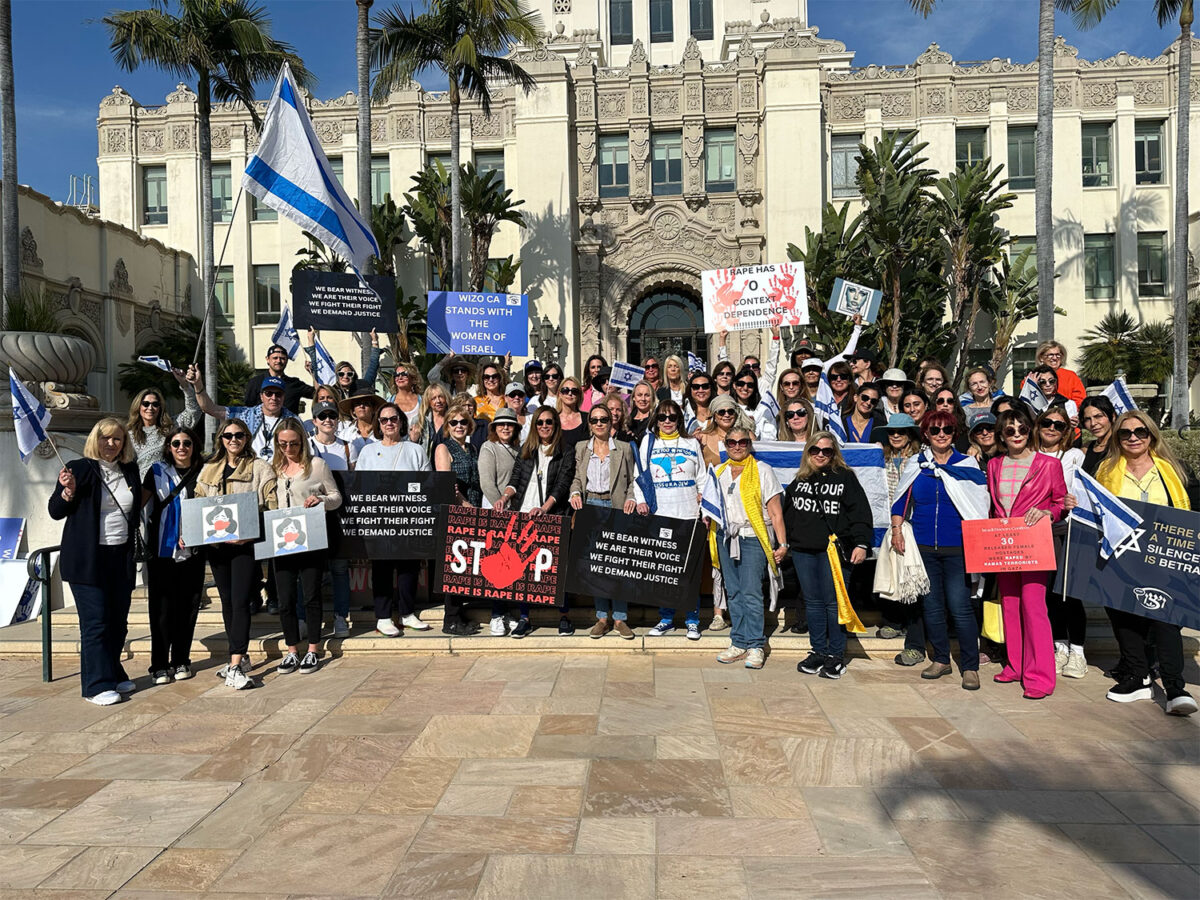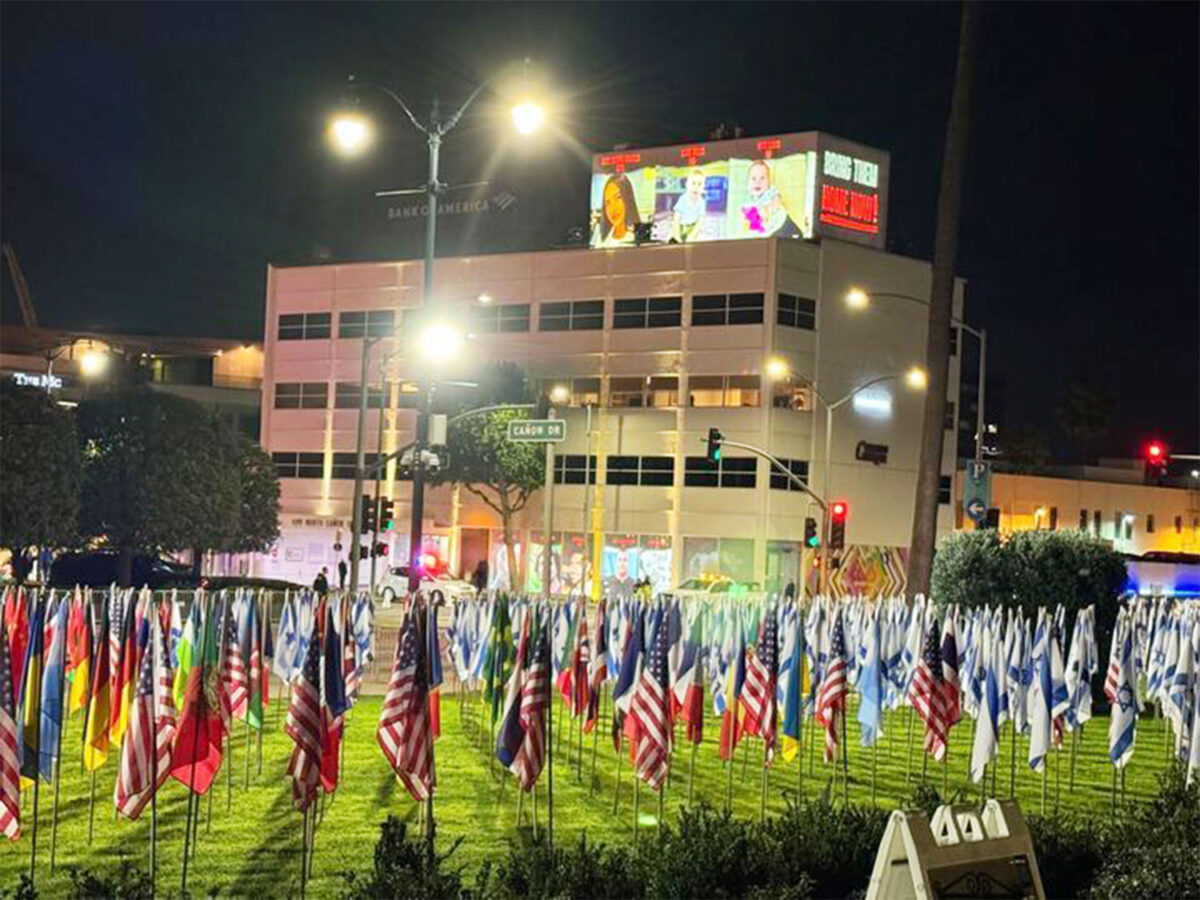A group of 300 protestors calling for a ceasefire in Gaza gathered at La Cienega Park before marching to the Beverly Center. The group stopped traffic and drew a pro-Israel counter-protest of approximately 30 people on Dec. 23, one of the busiest shopping days of the year.
Demonstrators at La Cienega Boulevard and Gregory Way waved Palestinian flags, chanted slogans and bore signs describing the ongoing conflict in Gaza as an apartheid state and genocide.
Counter-protesters bore Israeli flags and shouted “Free Palestine from Hamas” in retort to chants from across the street. One of them was Beverly Hills Councilmember John Mirisch. He described the slogans of pro-Palestinian demonstrators as “Islamofascist” and “anti-Jewish.”
“They’re chanting insane things that we know are just a form of Jew hatred, and we’re at an unprecedented time when Jew hatred has exploded in this country,” Mirisch told the Courier while crossing the street to join counter-protesters. “And we need to make it clear they’re not welcome in our community.”
Flyers distributed on social media to promote the event listed Black Lives Matter-Los Angeles, Islah LA, The Muslim Anti-Racism Collaborative and several others as participating organizations. Before marching from the park to the shopping center, organizers with bullhorns acknowledged the presence of opposing protesters. They urged their supporters not to engage with the other group, while insisting that they were in public space and acting within their rights to free speech and public assembly.
Leah Houseman lives in the area, was in Israel in the wake of a series of attacks by Hamas on Oct. 7, and stood with pro-Israel demonstrators. She said pro-Palestinian demonstrators failed to adequately take into account the violence committed against Israeli citizens and saw little hope of finding common ground.
The dueling demonstrators brandished flags at each other, occasionally spilling out from their respective corners and into the crosswalk. Several shouting matches ensued as well as at least one instance of pushing and shoving. A spokesperson for the Beverly Hills Police Department told the Courier that no arrests were made.
At about 4:30 p.m., the pro-Palestinian group began walking down lanes of La Cienega Boulevard. They shouted “Shut It Down” while making their way to the Beverly Center and were shadowed by counter-protesters.
West Hollywood resident Debbie Esner stood in the intersection at Wilshire Boulevard with a blue and white flag as a throng of protesters walked past her. She said she was a proponent of tolerance and freedom of speech, but she perceived the pro-Palestinian demonstration as an attempt to intimidate the local Jewish community.
“I am Jewish,” Esner said. “My daughter’s father is Christian. My new husband’s ex-wife is Muslim. So, we welcome everybody. But this is about intimidation. This is about American Jews feeling safe in their neighborhoods. To pick a location where it’s near a synagogue, I just couldn’t sit at home.”
Los Angeles resident Karen Pomer was one of the marchers calling for a cease-fire. She is Jewish and the daughter of a Holocaust survivor who had been sent to the Bergen-Belsen concentration camp during World War II. She said she has participated in numerous protests in support of Palestine and has never felt threatened.
“In the last two and a half months, I’ve attended two dozen or more pro-Palestinian demonstrations,” Pomer said. “I’ve identified myself as Jewish at the demonstrations, and never once did I feel any antisemitism or any anti-Jewishness.”
She was accompanied by Dr. Ahlam Muhtaseb, a professor of media studies at CSU Santa Barbara, co-chair of the California Faculty Association’s Palestine, Arab and Muslim Caucus and one of the featured speakers at the end of the protest in front of the Beverly Center. She was not involved in planning the demonstration. However, she said it was important for pro-Palestinian activists to be heard in communities largely in support of Israel in order to create opportunities for uncomfortable and critically important discourse.
“Let it be. Yes, we want them uncomfortable,” Muhtaseb said.
“What they are doing is weaponizing antisemitism against Palestinian activists, against activists for justice in Palestine, and distracting from real antisemitism,” she later added. “Because we do have a real antisemitic problem. We do have antisemitic discourse in this country. We do have hate speech that is motivated by antisemitism. But that (activism) is not antisemitism. They are pointing in the wrong direction and distracting from the real antisemitism.”



